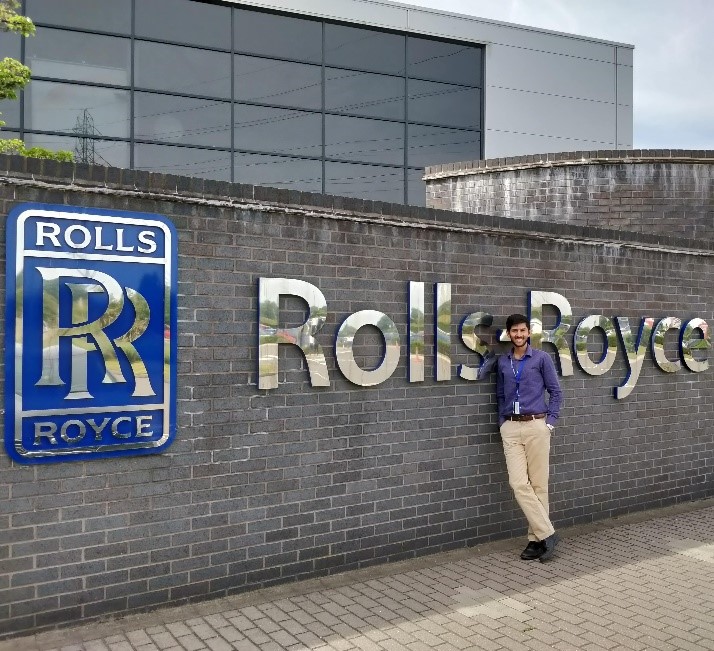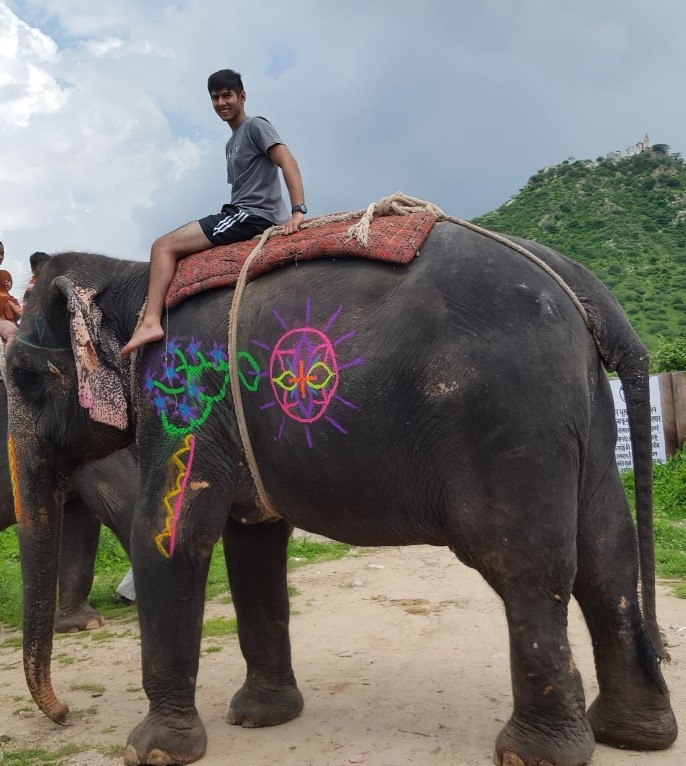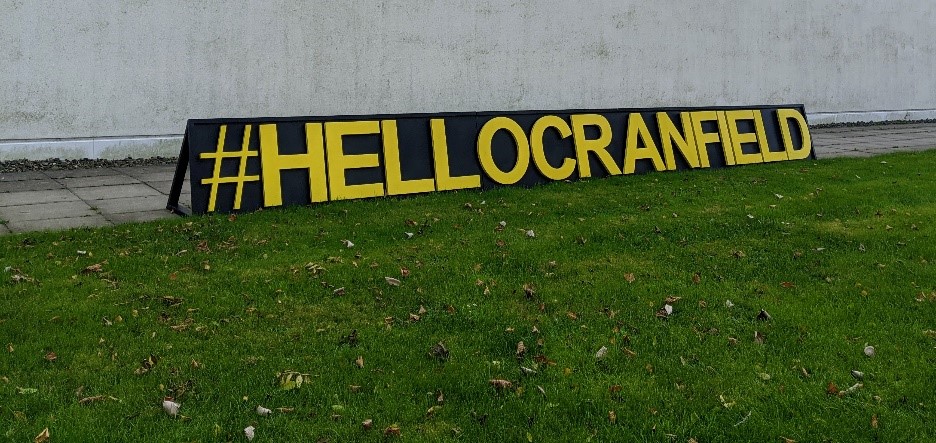My Cranfield MSc – normalising my journey
09/10/2020

Welcome to my first blog! In this series of posts, I hope to tell you about myself and share with you a bit about my course and journey at Cranfield University.
My name is Yashwant and I am beginning an MSc in Computational and Software Techniques in Engineering at Cranfield University!

I am originally from Jaipur, also known as the ‘Pink City’ of India, which is in the heart of the ‘Thar Desert’. I have lived in the UK for the past 5 years to complete my MEng in Aerospace Engineering at the University of Sheffield. As part of my degree, I also undertook a year-long internship at Rolls Royce PLC as a Materials and Process Modelling Engineer which was a key steppingstone to complement my knowledge from Sheffield. At Sheffield, I specialised within aerospace propulsion and composite materials, and completed my thesis on the topic “Activation Level Measurements of Semi-Active Particle Dampers”.
The ongoing pandemic has forced us all to rethink our current trajectories and my journey to Cranfield is very similar as well. Having secured a graduate placement for 2020, I was on track to join a company as a graduate engineer, however, the offer was deferred due to the hardships faced by the company. I took this news as an opportunity to work on self-improvement and emerge on the other side of this pandemic with a stronger portfolio and broader skillset. Cranfield University has always been an institute highly regarded by me to be the gold standard for higher education and research in aerospace. The close industrial relations paired with a growing focus on computational advancements made Cranfield the obvious choice for me. I was also honored to be the recipient of the Cranfield Scholarship, which rewarded me for excellence in past academic performance and a desire to drive forward my career aspirations following the degree at Cranfield.

The main reason I chose the Computational Intelligence for Data Analytics option within my MSc of choice goes back to my placement at Rolls Royce. Throughout the year, I was exposed to many novel tools that were being used across the engineering and research departments. On further exploring these tools, I got deeply intrigued by the possibilities to expand their accessibility beyond traditional research facilities. Our present work habits have shown an increased demand for services and software that can be used remotely, regardless of their location or equipment at hand. Enhanced accessibility would boost productivity allowing the engineers and researchers to work just as effectively, without having to compromise on the quality of their work due to limited hardware at remote locations.
Machine learning and cloud computing would be the most important technological pillars for me to gain a better understanding of the principles behind developing such computational tools. The specialised modules in cloud computing and AI would equip me with the relevant theoretical skills within these fields. Integrating these capabilities with my current knowledge of aerospace systems would put me in a compelling position towards achieving my targets.
It is to be said that the learning and teaching experience this year is going to be different compared to previous years, but I am embracing this hybrid approach of online and in-person teaching. The group project and individual thesis would also provide me with a platform to exercise the theory into more practical applications and should be a lot of fun. The transition from a more conventional aerospace engineering degree to a programming focused one was intimidating at first, but the broad opportunities that a coveted MSc from Cranfield can offer has me really eager to commence.

I am also very keen on improving the sustainability of the products around us and minimising the impact our actions have on the environment. To connect with like-minded students within the university, I joined the Green Team at Cranfield University. The society runs events and activities throughout the year to promote a greener lifestyle while raising awareness across the university. Finally, I have also been very impressed by the sports facilities provided by the university and am excited to join the tennis club to participate in safe but social tennis sessions.
Stay tuned for my next blog post where I take you through my arrival in Cranfield and share my thoughts on the new teaching practices as I complete my first week on the new course!!
Find out more about the Computational and Software Techniques in Engineering MSc.
Categories & Tags:
Leave a comment on this post:
You might also like…
Company codes – CUSIP, SEDOL, ISIN…. What do they mean and how can you use them in our Library resources?
As you use our many finance resources, you will probably notice unique company identifiers which may be codes or symbols. It is worth spending some time getting to know what these are and which resources ...
Supporting careers in defence through specialist education
As a materials engineer by background, I have always been drawn to fields where technical expertise directly shapes real‑world outcomes. Few sectors exemplify this better than defence. Engineering careers in defence sit at the ...
What being a woman in STEM means to me
STEM is both a way of thinking and a practical toolkit. It sharpens reasoning and equips us to turn ideas into solutions with measurable impact. For me, STEM has never been only about acquiring ...
A woman’s experience in environmental science within defence
When I stepped into the gates of the Defence Academy it was the 30th September 2019. I did not know at the time that this would be the beginning of a long journey as ...
Working on your group project? We can help!
When undertaking a group project, typically you'll need to investigate a topic, decide on a methodology for your investigation, gather and collate information and data, share your findings with each other, and then formally report ...
From passion to purpose: My journey at the Pinnacle of Aviation
By: Sultana Yassin Abdi MSc Air Transport Management, Current Student Born and raised in the vibrant landscape of the UAE, with roots stretching back to Somalia, my life has always been ...






